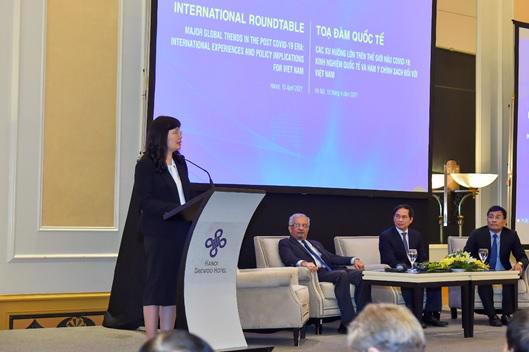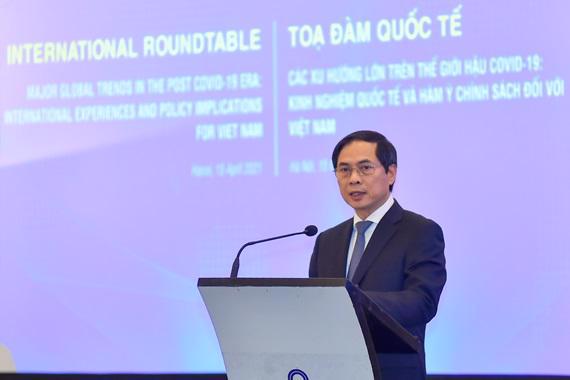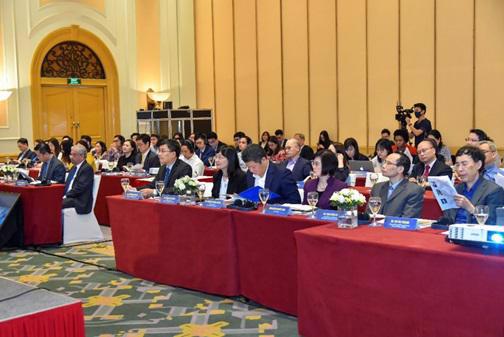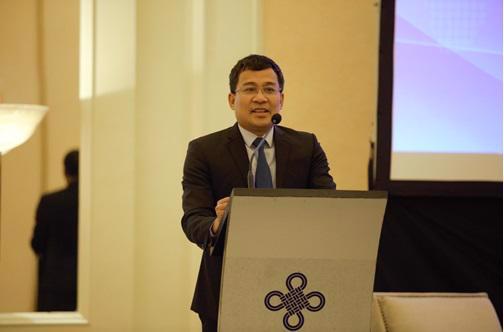


The roundtable was attended by Minister of Foreign Affairs Bui Thanh Son, UN Resident Coordinator to Vietnam Kamal Malhotra, Deputy Minister of Foreign Affairs Nguyen Minh Vu, representatives from the Ministry of Planning and Investment, Ministry of Science and Technology, Ministry of Industry and Trade, Ministry of Foreign Affairs, Party Central Committee’s Economic Commission, leaders of Hanoi city, Oxfam in Vietnam, Fulbright University in Vietnam, economists, FPT Corporation, Deloitte Vietnam. The roundtable attracted the participation of nearly 15 top international experts from organizations in the UN system including the UN Development Program, UN Conference on Trade and Development, UN Environment Program, WHO and other international institutions such as WB, IMF, ADB, IFC, ITU, ILO.

In the opening remarks, Minister Bui Thanh Son highly valued the effective cooperation of the UN Resident Coordinator in Vietnam in organizing the seminar and the participation of domestic and international experts. The Minister emphasized that after 35 years of Doi Moi, Vietnam demonstrated a great aspiration to become a high-income developed country in 2045. In the mutual effort of the whole political system, diplomacy played a pioneering role in connecting Vietnam with major global development trends, pushing deep and comprehensive international integration. In that spirit, the Minister suggested the roundtable focus on the following contents. Firstly, assessing important global trends, especially those that can create opportunities for Vietnam to breakthrough; Secondly, sharing international experiences, assessing lessons in utilizing global trends to help the economy recover post- Covid-19 era; Thirdly, recommending prioritized policies in Vietnam’s development strategies to utilize global post-Covid-19 trends, suitable with Vietnam’s characteristics, economic, political, social conditions and development priorities.

Also in the opening remarks, Mr. Kamal Malhotra highlighted some significant major trends, global impacts and countries’ chances of creating a better future. He mentioned a rising concern about 3 global crises including climate change, loss of biodiversity, and pollution. These crises threatened to destroy past accomplishments as well as development prospects in the future. He also talked about the rising geopolitical tension between China and the US in recent years and its impacts on multilateral cooperation and degradation of universal values in global governance. Mr. Malhotra pointed out the inequality in distributing Covid-19 vaccines among nations could continue degrading multilateral cooperation on a larger scale in the coming years. Mr. Amphora was impressed with the rapid speed that the world was moving during the pandemic to embrace new and pioneering technology to assist in the maintenance of basic services and economic activities although many people experienced severe disruptions in these areas and weren’t able to recover. In his closing remarks, he believed that the rising inequality in each country and among countries had become a major concerning trend. Therefore, reducing inequality as well as pursuing a sustainable and resilient recovery policy was the ultimate goal of the UN. He expressed his hope that this seminar would spark new ideas for this recovery process.

Focusing on discussing and assessing major trends in the post-Covid-19 era, the roundtable was divided into 3 main discussions on digital transformation, shifting to an inclusive, self-reliance and sustainable growth model and sustainable recovery. Based on the comments, the delegates suggested some policy-making directions to help Vietnam take advantage of the major trends in the world, effectively combining external resources with national strength to create a combined strength, helping Vietnam achieve breakthroughs, aiming at the development goals set out at the XIII National Congress.